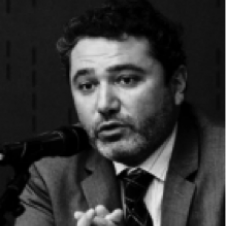Crypto-currencies are not widely used as a means of payment in Colombia or the European Union. This observation leads us to question the compatibility of crypto-currencies with payment law, and in particular the conditions under which crypto-currencies can be admitted as having a power to discharge, from a Franco-Colombian perspective, which enables us to approach the issue through two civil law systems, albeit subject to different economic and political contexts. On analysis, French and Colombian payment law are ill-suited to crypto-currencies, admitting them only as a conventional means of payment, since they do not benefit from a universal power to discharge. Although the legislation applicable to crypto-currencies has recently been strengthened, notably with the MICA regulation in Europe, payment law still needs to be adapted to ensure that crypto-currencies are admitted as a genuine means of payment, even if this means enacting measures to protect certain users. How crypto-currencies are used will depend on the level of trust they can inspire.
Notes de bas de pages
The 1985 Product Liability Directive (PLD) is currently being revised, with a view to adapting European Union product liability rules to the digital economy and new technologies. The ongoing discussion focuses on technical issues and apparently takes it for granted that the PLD as it stands adequately achieves the policy goals that were initially assigned to it, namely the establishment of a common market and consumer protection. However, a closer analysis shows that harmonising product liability is not needed to create a truly common market and, more importantly, that the PLD is not an effective instrument for consumer protection. A particular cause for concern is that almost no cross- border claims seem to be brought under the Directive, meaning that those injured by defective products are in effect left without a remedy when the producer is not located in the same country as they are. If the new PLD is to be more than mere poster legislation and to contribute effectively to consumer protection, more drastic changes to the current regime are needed than those that are currently being contemplated. The range of potential defendants should be broadened to include suppliers and online marketing platforms as a matter of principle, and the development risk defence as well as the application of a long-stop period in case of bodily injuries should be reconsidered.
Notes de bas de pages
Some doctrinal works participate so significantly in the understanding of legal phenomena that they become unmissable. Others become essential on account of the reflection they develop or due to the originality of their approach and thought. The work reviewed here belongs to those two categories, both because the information it contains on the regional courts of human rights is precise, complete and invaluable, and because the approach which underlies it is fundamental and belongs to a necessary movement of renewal of the theory of international law in general and of international human rights law in particular…
Notes de bas de pages
The theme of rights is so absolutely central to legal-philosophical reflection that when the term 'age of rights' is being used to refer to the period coinciding with the consolidation of contemporary democratic regimes, it means that human rights, democracy, and peace are three necessary moments of the same historical movement: without recognised and effectively protected human rights, there is no democracy; without democracy, there are no minimal conditions for the peaceful resolution of conflicts…
Notes de bas de pages
By presenting the Swiss approach to statutory interpretation, ie the pragmatic pluralism of methodologies, this paper underlines that this is a good way for the judge to take into account a basic principle: different cultures, different languages produce different texts. Since the same idea cannot be expressed in the same way in different languages, one cannot stick to the wording in order to find the common meaning of all these various wordings. More visible in multilingual legal regimes, this principle applies, however, also to monolingual systems. It is not possible to stick to a 'clear' wording without a proto-interpretation of such wording through which the judge weighs all the approaches in order to get to a solution that reflects the underlying normative values.
Notes de bas de pages

Graduate with honours by University of Bologna in 1989, he became in 2001 a researcher at the Faculty of Law of the University of Modena and Reggio Emilia in 2001.In 2005, he was appointed Associate Professor by the Faculty of Education, where he remained until 2008. Since then, he has been working at the Department of Law.
His research focuses on constitutional law and fundamental rights, with particular emphasis on the exercise of freedom of expression and opinion.

Prof. Dr. Anne Sanders, M.Jur. (Oxford) holds the chair for civil law, company law, the law of family businesses and comparative judicial studies at Bielefeld University, Germany, and is Professor II at the University of Bergen, Norway. Her research focusses on steward ownership and enterprise foundations and sustainable business law. She is a co-author of the legislative draft for the implementation of steward ownership in Germany and a member of the advisory board of the Stiftung Verantwortungseigentum.

Anabel Riaño-Saad is a lecturer and researcher at Externado University of Colombia. She currently holds the Chair for Law of Obligations and Family Law, and is a member of the Doctoral School at Externado University. A lawyer and specialist in liability and compensation at Externado University (Bogotá), she holds a Master's degree in Private Law from Paris-Panthéon-Assas University (Paris II) and a Doctorate in Law from Paris-Panthéon-Assas University (Paris II) and Externado University. Her research focuses mainly on the law of obligations and contract law.

Francesco Martucci is agrégé des Facultés de droit and Professor of Public Law at Paris-Panthéon-Assas University, where he serves as head of the Master’s in European Market and Regulatory Law. He is also a member of the Haut Comité Juridique de la Place Financière de Paris (HCJP). He is the author of two textbooks on European Union law, as well as numerous publications in the field of European economic law.

Julie Ferrero is Professor of Public Law at Jean Moulin Lyon 3 University. In that capacity, she is currently co-head of the Master's degree in the Law of International Organizations. Her research focuses mainly on the contentious, institutional, historical and critical dimensions of international human rights law, as well as African regional law and international and European migration law.
